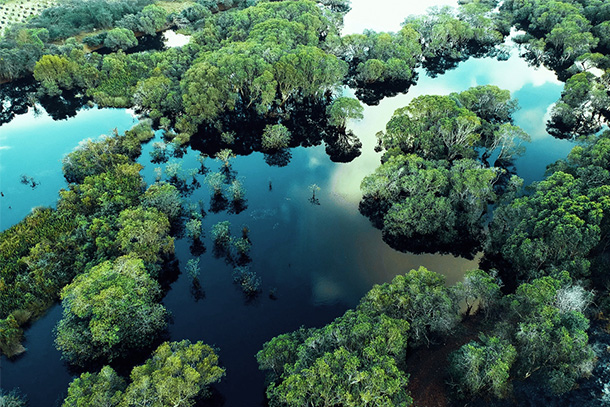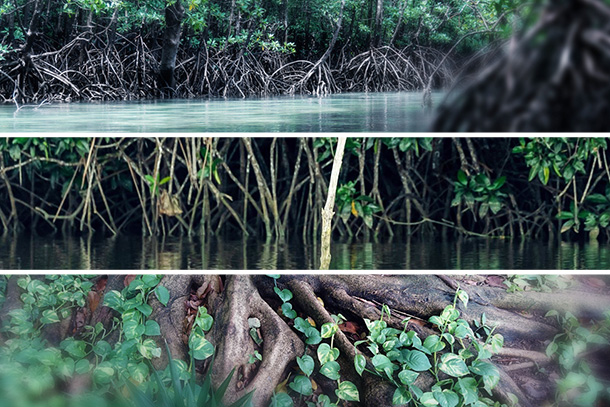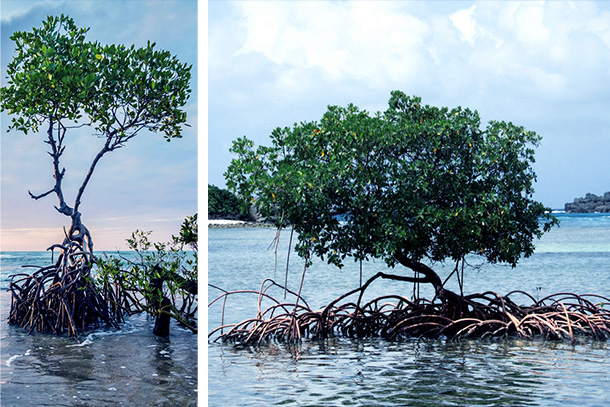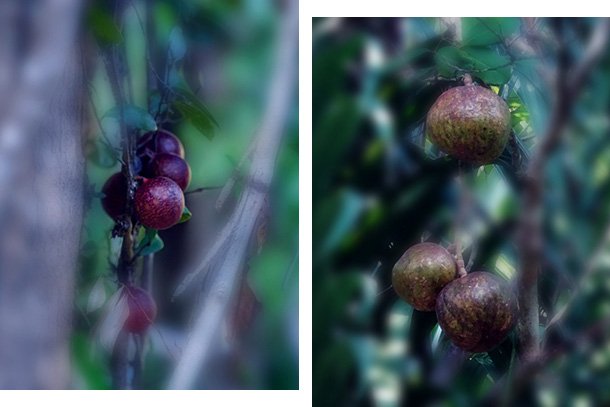


Ream National Park, with about 12 kilometers of the most magnificent mangrove wetland reserve in Southeast Asia, an endless landscape of rare mangrove forests, such as a dreamy fairyland, and everywhere you can see the fascinating scene of clouds floating on green water and herons dancing in the jungle, which is a blessing from nature.
Southeast Asia's Most Magnificent Mangrove Landscape ——

Mangrove forests, also known as "sea forests", are coastal plant communities composed of a group of aquatic woody plants, with special ecological status and functions, and are extremely valuable wetland ecosystems that play an important role in regulating the marine climate and protecting the coastal ecosystem.
The reason why this mangrove forest in Ream National Park is said to be the most magnificent mangrove wetland reserve is because most of the mangrove trees in other sea areas can only grow to the size of a shrub, while this sea area of Sihanoukville, which has not been polluted or damaged for thousands of years, often has mangrove trees that can grow to more than ten meters in height, and the leaves of the plant are much larger than those of an ordinary mangrove, which is what creates the most magnificent mangrove forest landscape.
On the other hand, mangrove forests have particularly high requirements for water quality. In the waters where Ream mangrove forests exist, red tides almost never occur, and mangrove forests can adsorb heavy metals in the water body and act as a purifier of the water body, and under multiple purification, the purity of the water quality here is about three times that of the ordinary environment.
At the same time, this mangrove forest in Ream has a complete ecological cycle system, the tidal channel in the mangrove area is developed, the dry weight of the fallout every year is up to about 40% of the weight than other natural communities, the fallout provides rich bait for the plants and animals in the mangrove forest, and it is the habitat for the production and reproduction of all kinds of birds, fish, shrimps, crabs, shells, and zooplankton.
Why are they called "Mangroves"? ——

Mangrove forests are subtropical, tropical plants, usually, the average temperature required for the survival of mangrove forests can not be lower than 20 degrees Celsius. The name "Mangrove" comes from the fact that after the bark is cut off, it releases "tannin" (tannic acid), which turns the attached branches reddish-brown after oxidation.
What is Aerial Rooting? ——

Many large and small pipes extend from the mangrove's body, which are either inserted into the ground or into the water. In fact, these tubes are the breathing organs of mangroves, which are also called aerial roots. These aerial roots are loose in texture, with countless gaps in the center, and the root skin is full of stomata, which can be directly exposed to the air to breathe fresh air. It is thanks to these aerial roots that mangroves are able to maintain normal root respiration in coastal environments that are flooded by tides, high in salt and lacking in oxygen.
How do Mangroves Reproduce? ——

Mangroves grow in a special environment where the seeds are easily washed away by the soft sand and the rise and fall of the sea. In order to protect their own seeds, mangroves will produce seeds in a "viviparous" manner. Specifically, the seeds will not fall off and germinate after they are mature, but will continue to stay on the mother's body to absorb nutrients, germinate and grow into seedlings. After it develops to a certain extent, it breaks away from the mother body and falls into the beach mud, where it continues to develop into new plants. Because this reproduction method is very special, people are accustomed to calling mangroves viviparous trees.
In addition, mangroves have high industrial, medicinal and other economic values. For example, the rinds of the muhly and sea lily species can be used to stop bleeding and to make spices, and its roots can be extracted for juice, which is a valuable spice. Its leaves are often used to control blood pressure, the juice can be rubbed on the body to relieve the pain of rheumatism, and the oil extracted from mangrove fruits is used to light oil lamps, repel mosquitoes and treat insect bites, dysentery and fever!
Some people say that mangrove forests add a splash of color to the coastal scenery, but mangrove forests do not choose to guard the coast for the sake of decorating the scenery or beautifying the environment. Their original intention is to consolidating salt, creating land, purifying water and good soil. If you personally walk into the Ream mangrove field, you can truly understand the story of mangrove forests ......



